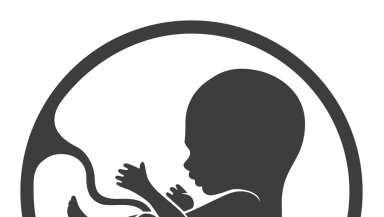
Exactly 236 years ago, on 22 May 1787, a group of 12 men met in a printing shop in central London to strategise the seemingly impossible: the abolition of the transatlantic slave trade.
It seems so obvious to us looking back that slavery is wrong and should be illegal. However this very thought owes itself to the hard labours of the thousands of abolitionists who made and ultimately won this case two hundred years ago. Their impact is felt not simply in our innate revulsion to slavery but in laws that continue to criminalise its practice today.
Sadly slavery still exists, and is still a huge problem, but at least it doesn't enjoy our moral and legal approval. It is also not the injustice that future generations will judge us for. Abortion on the other hand, is.
Over the last seven years I have had the privilege of working with a remarkable group of people that fear God, love his Son and study his word. Empowered by God's Holy Spirit, we have been labouring night and day on what it would take to abolish this new trade in human flesh.
Such things are easy to write, but harder to implement. However what is striking about our nationwide network of educators is that we believe the abolition of abortion to be biblical, achievable, and underway.
It's Biblical
It is a biblical response because the Bible unequivocally asserts that an unborn baby is a human being fearfully and wonderfully made. The Bible also asserts that it is morally wrong to shed innocent blood, to kill innocent people and wrong to sacrifice children to false God's.
As J John said in his response to Roe Vs Wade "God is pro-life, I am pro-life", the Bible may not use the word abortion, but this doesn't mean it cannot speak definitively about it. Indeed the scriptures are much clearer on abortion than they are on a whole heap of other contemporary issues (like immigration and the climate crisis) that are regularly addressed from pulpits.
Of course there are the gut wrenching, tear jerking, tricky cases like rape, incest, severe disabilities and abuse that call for great compassion and sensitivity from the Church. But these awful occurrences cannot be used to justify the norm: the medical killing and discarding of hundreds of thousands of unborn babies each year- often in homes - because the sex was wanted but not the baby that resulted.
As a church, we are biblically obligated to confront this injustice. As David Brennan, the About Abortion podcast host, states:
"Responding to the genocide of babies within and without the Church is not an optional extra for Christians: it goes right to the heart of what it means to be a disciple, loving God and loving our neighbour as ourselves, and fulfilling all of the Great Commission."
Achievable
Secondly, the abolition of abortion is achievable. When we look back in history we can see that entrenched and lucrative social evils (like the transatlantic slave trade, or segregation, or child labour) have repeatedly been abolished. These changes did not come about by osmosis, but rather through the prayers and faithful exertion of God's saints, often over decades.
As Martin Luther King wrote in his letter from Birmingham jail: "Time itself is neutral; it can be used either destructively or constructively. More and more I feel that the people of ill will have used time much more effectively than have the people of good will."
We must not presume a constructive outcome for babies, mothers and society unless we are willing to give our time to enact it.
What's more, these stories always end in new laws. Few Christians would argue that prosecuting slave traders for kidnap, torture and trading human beings was unchristian. Nor that to do so would force their illicit practice underground. Yet, similar arguments are often raised in defence of abortion. If society is persuaded that abortion is an act of lethal cruelty towards a fellow human being then it is only fitting that it should be outlawed and abortionists prosecuted.
Indeed we believe the grassroots exercise of persuasion has already begun.
Underway
Over the summer and autumn of 2022, our educators hit the high streets of England and Wales in order to ask people their views on abortion. Contrary to what other surveys and polls suggest, a majority of respondents, when given the facts, thought our abortion law needed reforming in some way - 58% in fact! The desire for reform was even greater in regard to killing babies simply because they have Down's syndrome (895 such abortions in 2021), or because they are showing signs of cleft lip and cleft palate (40 such abortions in 2021).
While it is true that these survey results are not representative of the nation as a whole, they do give a compelling insight into how differently respondents viewed abortion when it is not presented as an ideological absolute but rather as it really is, an act which intentionally kills an innocent human being. As our The Further Analysis and Commentary document states:
"If the exercise of inviting people to examine abortion facts, figures and images could be replicated on a much larger scale, our results suggest that it would only be a matter of years before many agnostic, unsure and pro-choice people, would reconsider their position and support a much more restrictive abortion law."
The data we have collected suggests that the abolition of abortion, or certainly a severely restricted law, is not something that future generations should expect, but something that could be just around the corner ... if enough of us make a compelling case.
If we combine these results with other independent cultural factors like: growing disillusionment with sexual liberalism, concerns over economic loss due to dwindling population replacement trends, and changing media narratives regarding babies conceived in rape and single mums; then we can also expect many new - formerly inconceivable - arguments to inform and direct the public debate moving forward.
Ultimately, we face a choice. Will we choose life or will we continue to tolerate the abortion industry? Let us "choose life" and as we do, draw inspiration from the audacity and faith of the abolitionists of the 1780s. If they, with the help of God, could do the impossible, so can we!
Christian Hacking is Public Engagement Officer for CBR UK.













